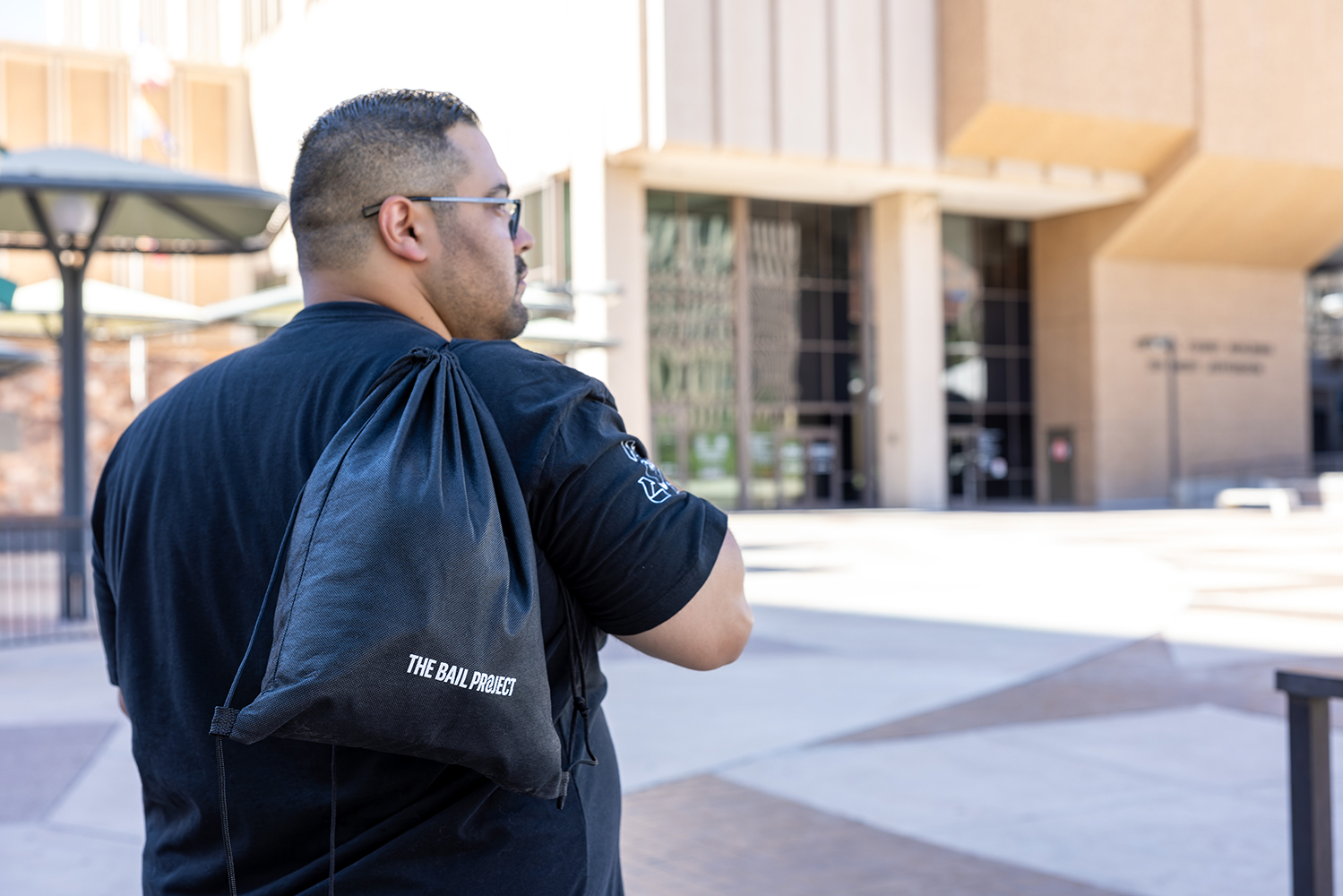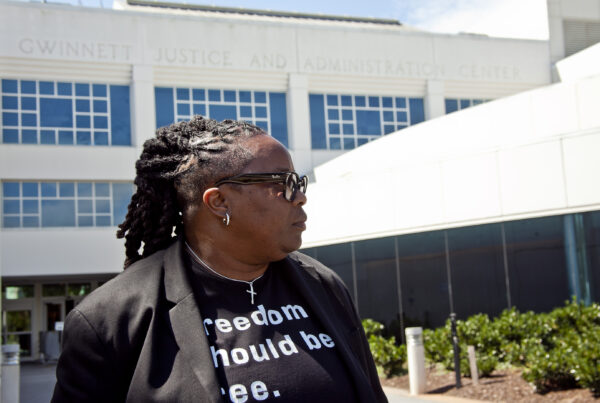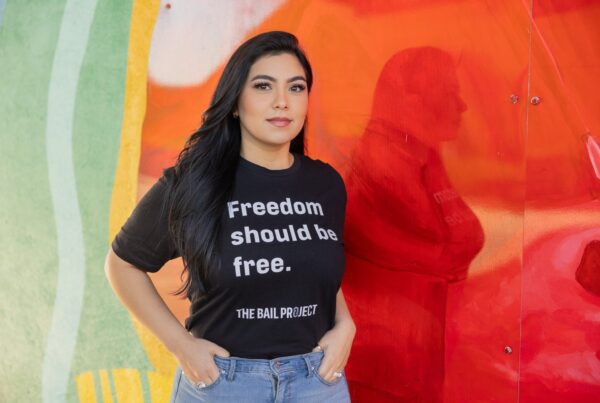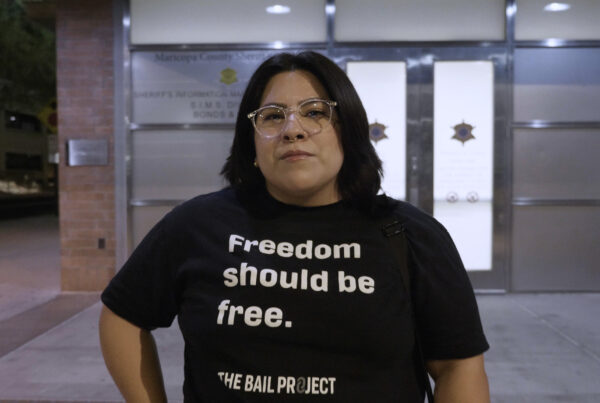Michael didn’t waste any time. Before leaving prison, he had already discovered his life’s calling: he wanted to be part of the healing journey for others impacted by the criminal justice system. It was June 2019, and although Michael wasn’t sure how or in what capacity yet, he was determined to give back to others what the system tried to take from him – his heart.
Five years later, Michael, 37, has been doing just that. He works at The Bail Project – a national nonprofit that provides free bail assistance and supportive services while advocating for system changes to end wealth-based detention. As a Client Support Specialist based in Phoenix, Michael works everyday with individuals who have been accused of crimes, but not yet convicted. After his team provides these individuals with free bail assistance, Michael offers to help connect them to community-based support services, such as housing assistance, mental health treatment, and job training. He also stays in contact with their attorneys in order to ensure clients have the best possible case outcomes, which includes case dismissals. Nearly one-third of clients at The Bail Project have their cases dismissed. Without The Bail Project’s support, these people would likely have remained unnecessarily incarcerated for something they would never be found guilty of.
“I want people to feel empowered and in control of their communities.”
“I’m blessed to be doing this kind of work because, to me, the only way to move forward is with a ‘no person left behind’ kind of attitude,” Michael recently explained. “I want people to feel empowered and in control of their communities.”
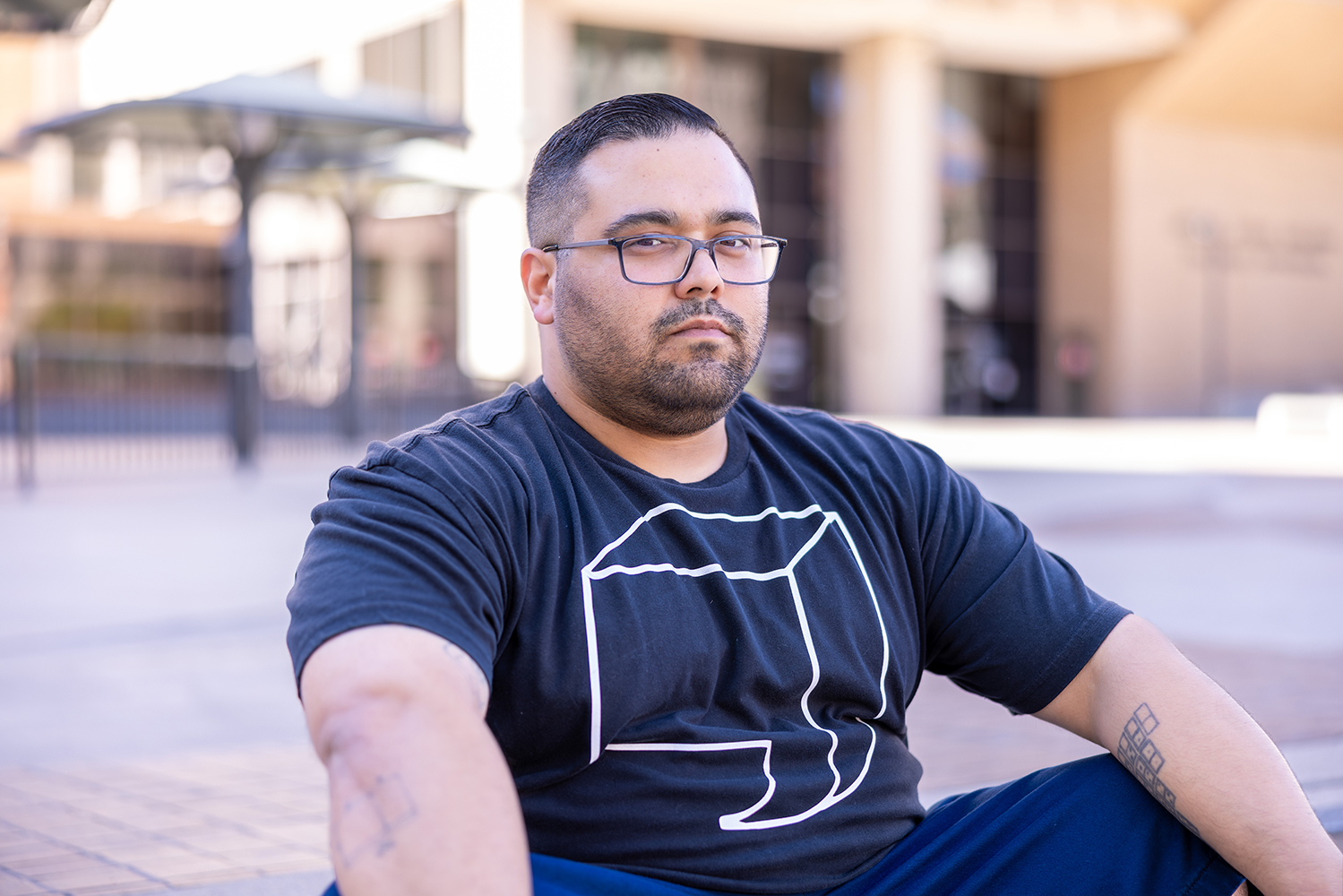 Michael Turns Setbacks into Stepping Stones
Michael Turns Setbacks into Stepping Stones
A passionate storyteller with infectious enthusiasm, from a young age Michael has enjoyed collaborating with others and turning creative ideas into reality from scratch. His journey to The Bail Project began in mid-2019, shortly after he was released from prison. Michael was determined to find a job supporting formerly incarcerated people. “Once you leave jail or prison, you experience a culture shock overnight,” Michael said. “It’s easy to lose hope. You’re expected to be a contributing member of society. But there’s a lot of things that go unaddressed,” such as housing denial, limited job opportunities, and restricted travel.
Michael experienced this first hand. He had applied to several dozen jobs, and while he got offers to many, they were rescinded after employers completed a background check. Still, he remained diligent and hopeful. Michael viewed these setbacks as obstacles instead of dead ends. “I just knew that it was a matter of getting past different hurdles,” he said.
Eventually, Michael found his way into a peer support certification class. Upon completion, he was flooded with various work opportunities. He decided to take a job where he worked with formerly incarcerated individuals diagnosed with mental illnesses and developmental disabilities. Part of his responsibility there was helping individuals reintegrate back home and into their communities.
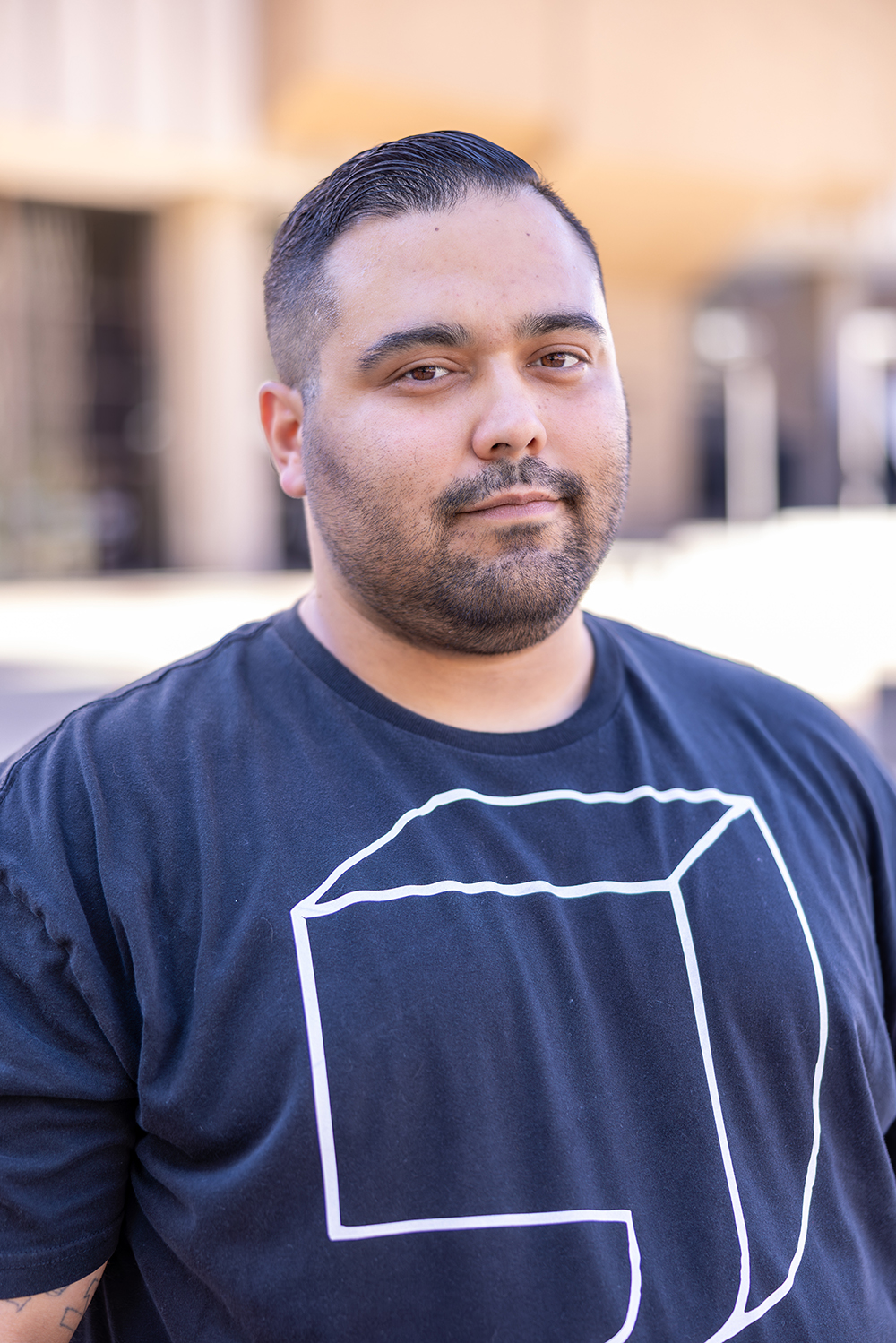
While Michael felt this was important work, he also sensed that it was only one part of reforming a broken criminal justice system. Because, although measures are needed to ensure safe transition from prison back into communities, these same measures are also needed on the front end, during the pretrial phase, when people first come in contact with the justice system. “One of the strongest things that we could do as a community and for each other is to stand up if stakeholders are not willing to fund the things that people need,” Michael said, referring to services such as court reminders, transportation assistance, affordable housing, and better job opportunities that require government funding to operate at-scale.
A few years later, when Michael landed the job at The Bail Project, he was finally able to merge all his interests and strengths into a role that felt authentic to his values and aligned with his life’s purpose. He had always wanted to find a niche problem that’s often misunderstood in order to motivate others to help tackle it. Most people, including those who work within the criminal justice system, have very little understanding of the United States bail and pretrial systems. “I’m in a space that allows me to embrace where I came from and not try to hide it or be ashamed of it,” Michael said.
The Pretrial System and Its Many Challenges
The pretrial phase of the criminal justice system refers to the period after an arrest and before the resolution of someone’s case, either by dismissal, a guilty plea, or an acquittal or conviction after trial. After a person is arrested, either a judge, the police, a magistrate, or a prosecutor – depending on the jurisdiction – will typically decide whether to release a person on their own recognizance, release them with non-financial conditions like electronic monitoring, and/or assign them an amount of money to pay as a requirement for them to be released from jail while their case is pending. The latter option is commonly known as cash bail, and one primary purpose is to ensure that the accused person will appear in court. If the person fails to appear, a judge may issue a bench warrant for the person’s arrest.
What many stakeholders fail to realize, however, is that when people miss court dates, it’s oftentimes unintentional. Navigating court processes is dizzying and confusing. Many times, individuals only have a single point of contact – their public defender – who may be overworked and difficult to reach. Compounding this issue is the fact that people often face conflicting court appearance dates and times, which are not uncommon given how many court systems still rely on outdated and archaic bureaucratic systems to notify people of upcoming appearances. Other times, individuals fail to show up because they can’t afford transportation. Sometimes it’s because they’re not able to receive time off work or they’re a parent and can’t afford a babysitter.
Transforming Lives Through Pretrial Supportive Services
Today, Michael continues to work at The Bail Project supporting legally innocent people whose cases are still pending. His work helps restore the presumption of innocence, while also keeping people safe in their communities: he reunites mothers and fathers with their children, ensures people retain their jobs or helps them find employment, and he supports their physical and mental health by referring them to treatment programs. Michael’s job is part of a program at The Bail Project referred to as our Community Release with Support model, which shares some things in common with what’s more widely known as “pretrial services.”
Pretrial supportive services emerged in the mid-20th century alongside the bail reform movement. They take several forms: in some jurisdictions, there are small pretrial service agencies that work with special populations; in others, like New York City, pretrial services are ubiquitous, and assigned to the vast majority of people who are released pretrial. Their aim is to ensure that people who are released from jail before trial comply with court conditions and also to support individuals in addressing the root causes of justice system involvement.
Over time, pretrial services have been shown to play a key role in reducing unnecessary incarceration and the use of cash bail. But not all pretrial service models are independently-run agencies or programs spearheaded by locally-based community groups or nonprofit organizations. Compared to the majority of government-supported programs, supportive services provided by The Bail Project, for instance, are voluntary, and not required in order for our clients to receive free bail assistance; nevertheless, our clients return to court 91% of the time with simple interventions like court notifications and travel assistance. Meanwhile, upwards of 75% of other programs are operated by probation departments with mandatory services and escalating punishments for noncompliance, an indication that more progress can be achieved by learning lessons from the work of community-based groups like The Bail Project.
Improving the Pretrial System Through Collaboration
“I’ve been working really hard to identify places in the system – both administrative and on the ground level – that can be improved and from both sides of the fence. And I believe that a good starting point is training and education,” Michael said, referring to stakeholders who work within the criminal justice system.
“The more I involve myself in this type of work, the more I begin to see that major stakeholders are listening.”
At The Bail Project, part of Michael’s work is doing just that. In the nearly 40 jurisdictions where The Bail Project has been located, prosecutors, judges, and jail administrators have welcomed our services, even referred clients to us, and recognized the way our work helps ease the burden on the dangerously overcrowded jails that exist in most major cities and counties. “The more I involve myself in this type of work, the more I begin to see that major stakeholders are listening,” Michael said. “They are realizing the importance of having me and others like me at the table weighing in on decision making. That’s worth working towards.”
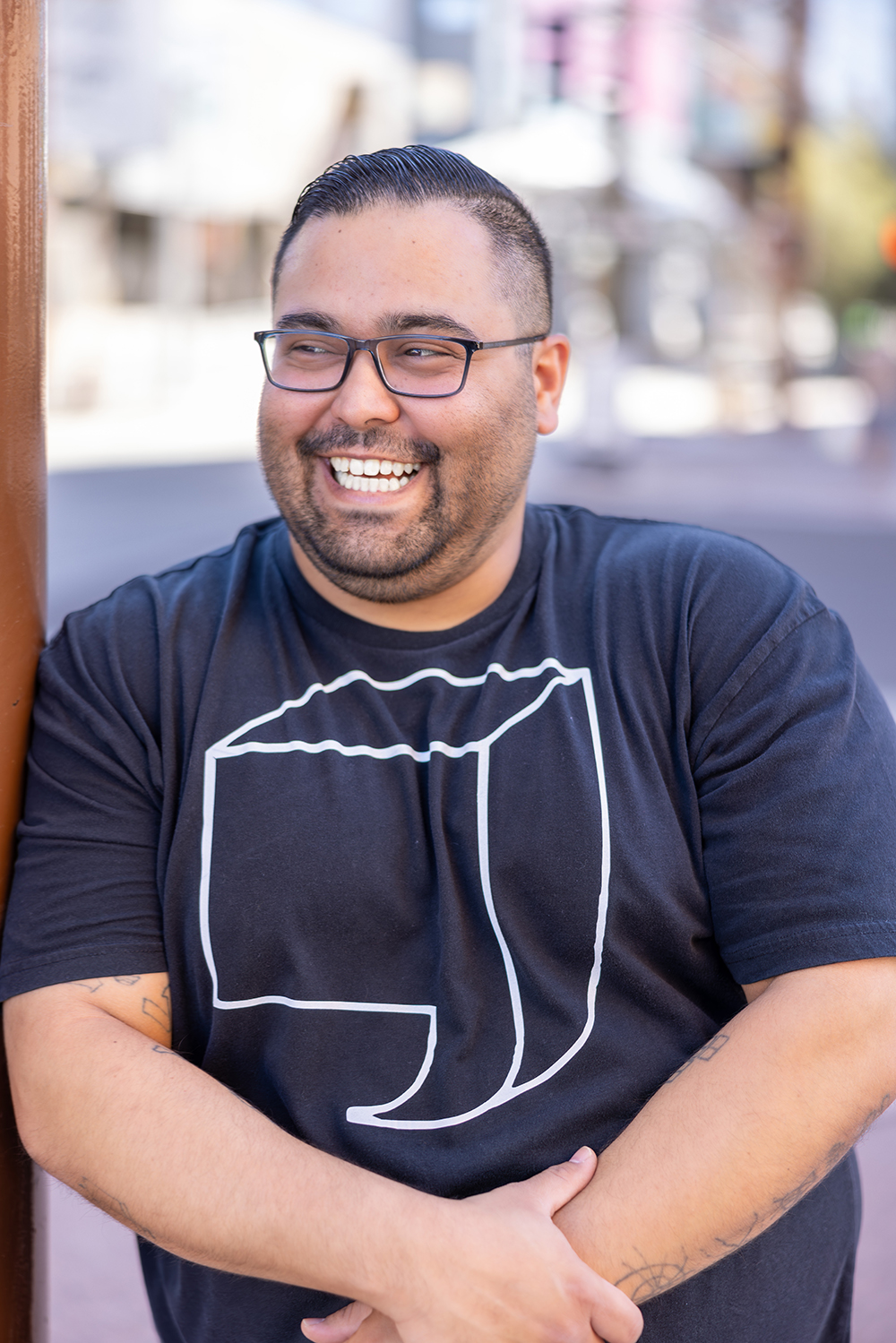
Michael’s achievements – both at work and in his personal life – show the power of community and human connection in transforming lives. His ability to establish a good rapport with clients is grounded in the sharing of his own story and ability to understand each individual’s unique needs. In doing so, Michael has not only helped countless individuals navigate the criminal justice system, but he’s also helped restore hope.
“I speak with clients everyday whose freedom is on the line. I know that feeling. And I know what strength it takes to face it head-on. That’s what keeps me going,” Michael said. “And when our client’s outcomes have a positive effect on their lives because of something we did, well, that fills my heart. And it reminds me that I’m right where I need to be.”
Thank you for reading. The Bail Project is a 501(c)(3) nonprofit organization that is only able to provide direct services and sustain systems change work through donations from people like you. If you found value in this article, please consider supporting our work today.







